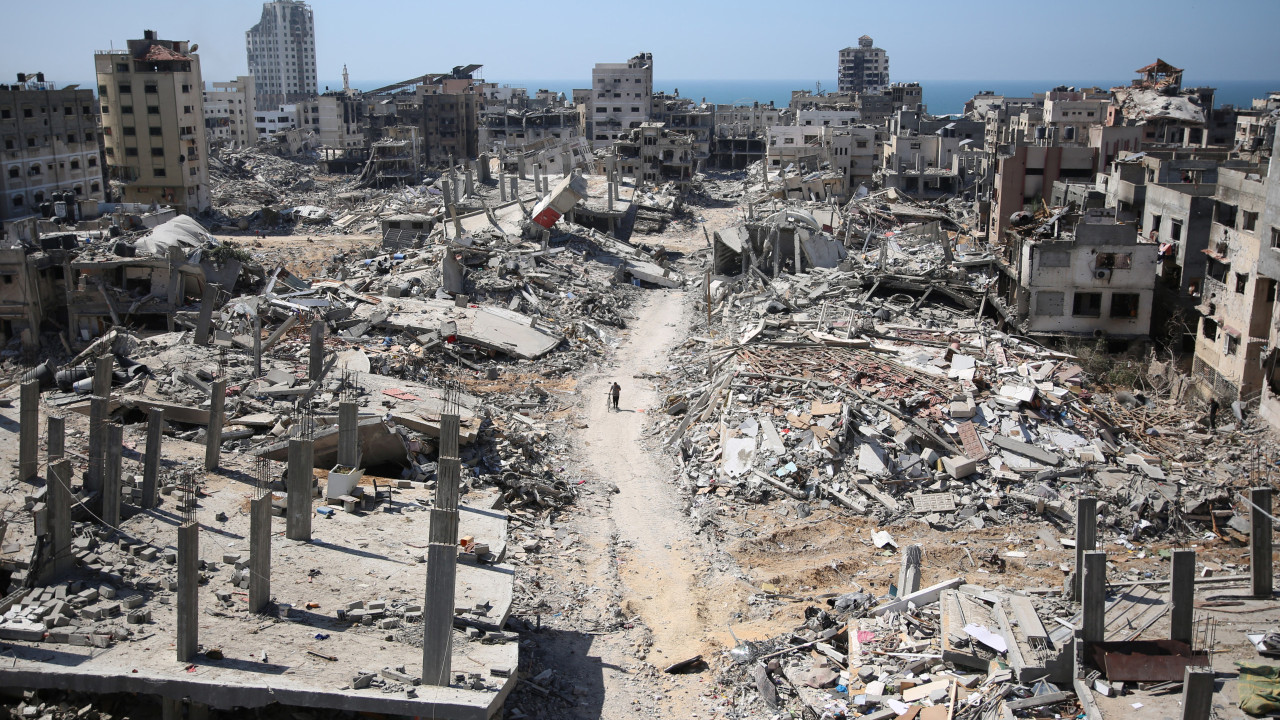
“AOnly 11 of the 36 hospitals that existed in the Gaza Strip are partially functioning. They provide some basic services, depending on the amount of food they may have and the amount of medical material, pharmaceutical and disposable products they may have”, said the representative of the UN agency, one day after returning from the territory, the scene of intense Israeli bombings since last October.
The person responsible for the WHO’s health emergencies in the Occupied Palestinian Territories was speaking at a conference organized by the British think tank Chatham House and made the diagnosis: “The health system is collapsing.”
“There are around 9,000 people who need to be removed from Gaza to receive health services that are currently unavailable: people with different types of non-communicable diseases, diabetes, different types of cancer,” he said.
Other problems are a significant number of patients requiring complicated surgeries and restrictions on the entry of medical supplies and equipment by the Israeli authorities.
In 30 years working for the UN, with previous stints in the conflicts in Darfur, Afghanistan, Kosovo, Yemen and Ukraine, Saparbekov has no doubt that what he saw in Gaza is worse.
“There is nothing that can compare my experience of being in a war zone to what I have experienced in Gaza since the start of the war. The human suffering is simply beyond words. There is so much human suffering and indignity,” he described.
Since the beginning of the conflict, he revealed, the WHO has recorded around 438 attacks on health facilities, which resulted in 722 deaths and more than 900 injuries.
Ghassan Abu-Sittah, a founding member of the humanitarian organization International Aid, Relief and Assistance Network (INARA), indicated that more than 400 doctors, nurses and paramedics were killed and 900 were injured.
“We need a ceasefire. And then we need the rapid injection of field hospitals and an increase in capacity to allow the treatment of people and the provision of health care”, he stressed, during the same conference.
“Some hospitals can be improved and repaired. Others, like Al-Shifa and the pediatric hospitals in the north, have to be built from scratch,” he warned.
Experts also spoke about the deterioration of social conditions, namely the destruction of sanitation and water supply networks, lack of shelter and concentration of people in Rafah (a small city in the south of Gaza), which is contributing to the spread of diseases infectious.
Also at the same conference, Rebecca Inglis, co-founder of the organization Gaza Medics Voice, highlighted the level of widespread hunger and malnutrition and explained that the only reason a hunger crisis has not yet been formally declared is because it is difficult to associate the increase in mortality with this cause in a war zone. .
According to a previous report, nearly 66% of households in the north of the country reported that people went entire days and nights without eating for at least 10 of the previous 30 days.
According to Rebecca Inglis, hunger will leave consequences for its victims, particularly in terms of children’s cognitive development and health.
The seriousness of the situation was due to the total control of the borders, the continuous Israeli bombings during the last six months and the destruction of agricultural infrastructure, the representative argued.
“When we talk about hunger, what it really means in this situation is that Israel is starving the people of Gaza. This is hunger as a weapon of war. It is a form of collective punishment that is being imposed”, he accused.
Read Also: IMF cuts Israel’s growth and stops publishing data on Gaza

Download our free App.
Eighth consecutive year Consumer Choice for Online Press and elected product of the year 2024.
* Study by e Netsonda, Nov. and ten. 2023 product of the year – pt.com
Source: https://www.noticiasaominuto.com/mundo/2542157/oms-relata-desespero-e-escassez-de-tudo-em-todo-o-lado-em-gaza


